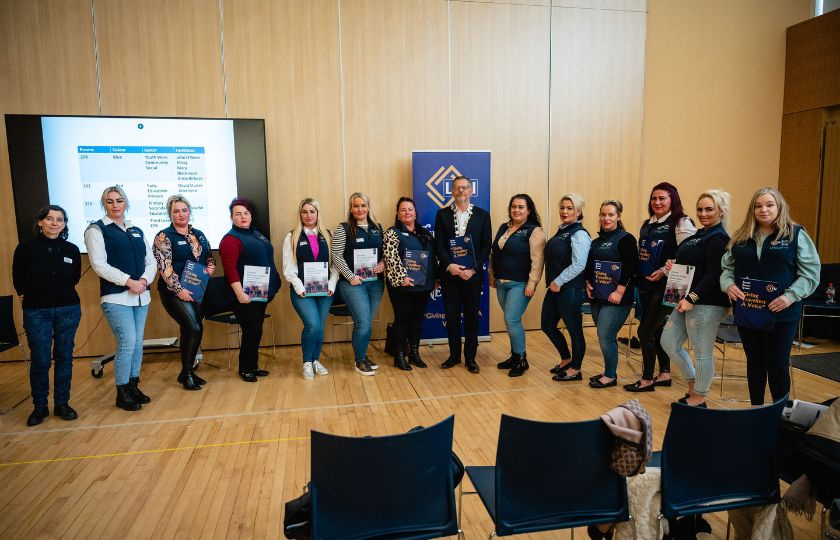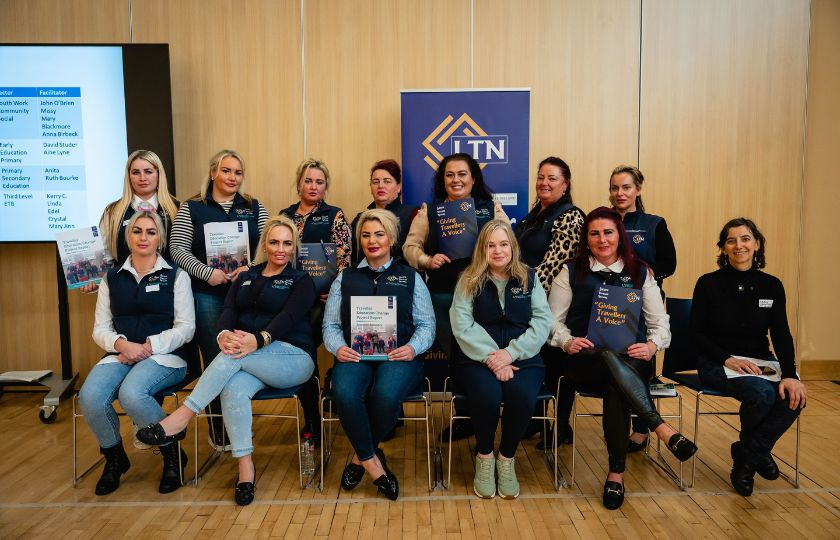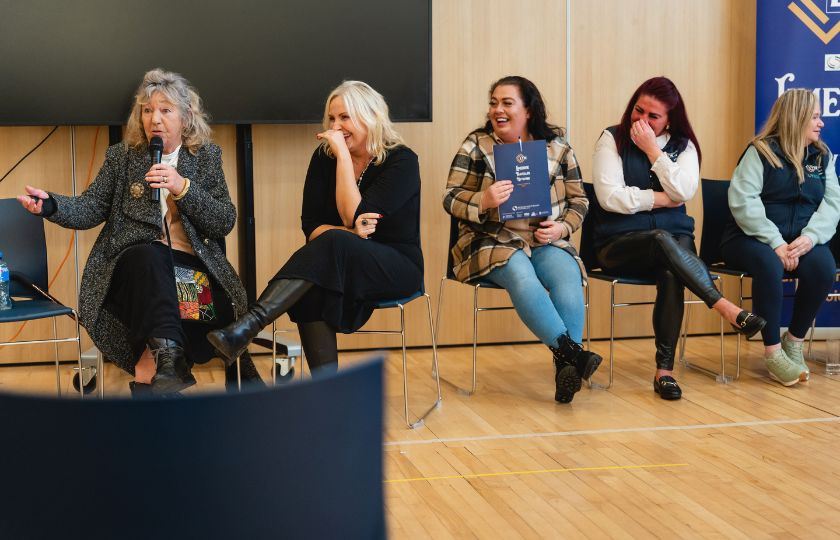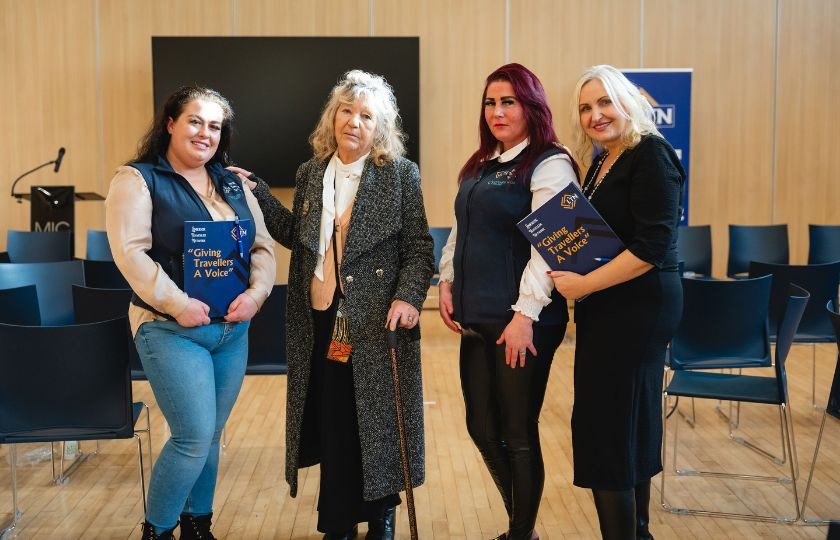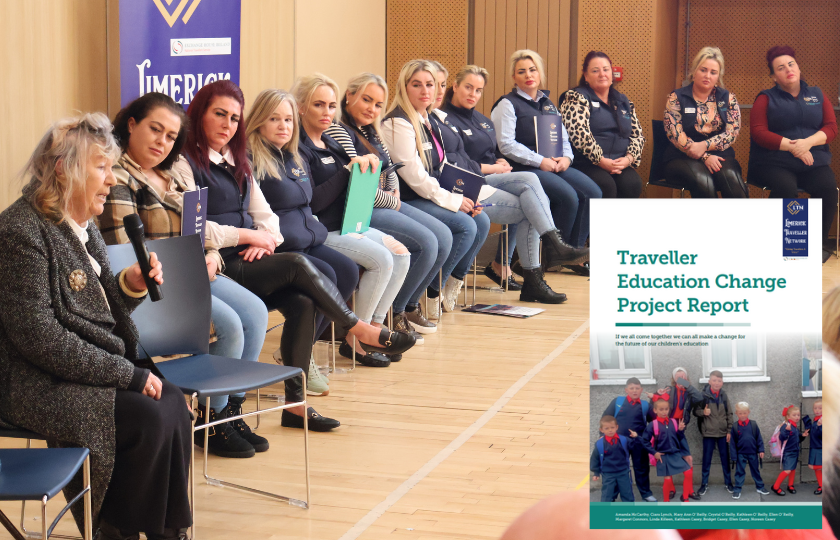
Mary Immaculate College (MIC) recently hosted the launch of a landmark report highlighting how community-driven initiatives can enhance educational outcomes for Traveller children in Limerick.
The Traveller Education Change (TEC) Project report, a participatory action research initiative developed and implemented with the support of Exchange House Ireland National Travellers Service, saw 12 members of the Limerick Traveller Network compile and write a document based on the experiences of 57 Traveller families, alongside data collected on 164 children aged 3 to 17.
Placing Traveller voices at the centre, the report aims to shed light on the systemic barriers Traveller children face within education. The project was guided and approved by Maynooth University.
Professor Camilla Fitzsimons, Head of the Department of Adult and Community Education at Maynooth University, who provided research consultancy and peer researcher training to the project, commenting on the findings said: “The gap between Traveller children and their peers grows throughout their educational journey, while many young Traveller children and their families find the education system positive at early-years and primary level, this trend tapers off throughout a young person’s educational journey. It is an uncomfortable truth that at the end of primary education a large number of Traveller students are not sufficiently prepared to transition to secondary education. Student happiness also declines as they progress through their education.”
John Moran, Mayor of Limerick, who co-launched the report stated: “I don’t think it should come as any surprise to anybody that the report revealed that Traveller children face significant barriers in accessing and in succeeding in education. It went one step further though, by actually identifying what those are and working out how we can, all together, address those issues.”
Chrissy Ward, Traveller activist and author of children’s books who co-launched the report and spoke first-hand about discrimination that her children and grandchildren experienced in their schools, said: “Traveller culture is deeply important to parents. Nearly half of the Traveller families surveyed said that Traveller culture was not present in their school and felt that schools were inclusive of Traveller culture.”
A parent and a peer researcher for the project noted: “As a parent I want the very best for my children and their education. Being part of this project has helped me to develop skills to empower myself, my children, my family and my wider community. Keeping the community at the centre has made sure that the voices of our children and parents are clear; we want equality in our schools, we want inclusion in our schools, we want Traveller children and our community to feel part of our education system and we want to be part of the solutions to changing our education system for the better.”
Among the findings were: The gap between Traveller children and their peers grows throughout their educational journey: while over 50% of parents of younger children reported that their child was on par with peers, this drops to 44% by ages 8-10 and 35% by ages 11-12. At the end of primary education, a large number of Traveller pupils are not sufficiently prepared to transition to secondary education. Student happiness also declines as they progress through their education. Parents reported that 67% of their children in Primary Education, and 75.9% in Secondary were receiving Special education supports, mostly through Special Education Support groups outside main class. Data collected from parents showed that 12% of children had their education needs assessed by an agency (HSE-NEPS) The higher number of assessed children is in the age group 13-15.70% of Traveller parents struggle to consistently understand school communications while none of the respondents were members of school boards or parents' associations.
The conference—organised in conjunction with the office of Equality, Diversity, Inclusion and Interculturalism (EDII) and Transforming Education Through Dialogue (TED) Project at MIC, and Limerick Children and Young People Services Committee—also featured information stands and conversation groups for stakeholders to share dialogue and find areas of common interest among attendees. The project was funded by the RTÉ Late Late Toy Show Appeal.
The peer researchers were: Amanda McCarthy, Ciara Lynch, Mary Ann O’Reilly, Crystal O’Reilly, Kathleen O’Reilly, Ellen O’ Reilly, Margaret Connors, Linda Killeen, Kathleen Casey, Bridget Casey, Ellen Casey and Noreen Casey.



